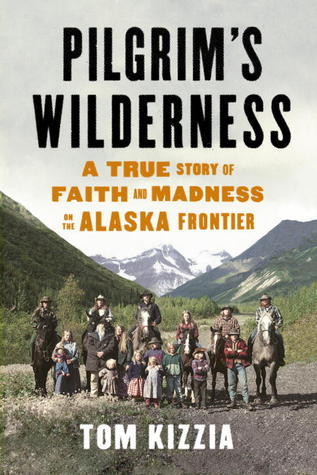 The Pilgrim family seems to be a lovable, if eccentric addition to the town of McCarthy, Alaska, and soon win many supporters for their battle for landowner rights with the National Park Service. But the head of the clan is keeping some secrets, and the family’s lifestyle is not as idyllic as it seems.
The Pilgrim family seems to be a lovable, if eccentric addition to the town of McCarthy, Alaska, and soon win many supporters for their battle for landowner rights with the National Park Service. But the head of the clan is keeping some secrets, and the family’s lifestyle is not as idyllic as it seems.
Having lived in bustling cities all my life, life in remote Alaska has always sounded surreal to me – and so I’ve often thought about how it would go if I moved up there for a season or two. Not very well, I imagine.
Anyway, this is the story of an off-the-grid fundamentalist Christian family who move into one such remote Alaskan town, which is unique for being smack dab in the middle of a national park. When the Pilgrims defiantly lay down a road in the wilderness, people in Alaska and beyond rally around them, hoping to use their case to advance the inholder rights cause.
Unfortunately, they probably should have looked further for their poster child, because it turns out that “Papa” Pilgrim is actually a horribly abusive man with a dark past who holds his family in an iron grip. I liked how this book creates a strong sense of time and place, immersing us in the world of the Pilgrims and of McCarthy, a former boom-town known for its rich copper mines. I found the reflection on how little we investigate our fifteen-second heroes very interesting, and I liked how the author placed a lot of weight on the resiliency of the Pilgrim children, lending them voices to explain the conflicted positions they were often put in.
However, I did feel like the narrative wandered at times – we learn a lot about McCarthy’s history and some of its colorful former residents, but while it was interesting enough I did feel it detracted too much from the main story in some places. Some of the more technical details surrounding the laws about the rights of the inholders were downright boring. The timeline also got confusing at times, as we weave back and forth between decades and I did not always know where we were situated.
